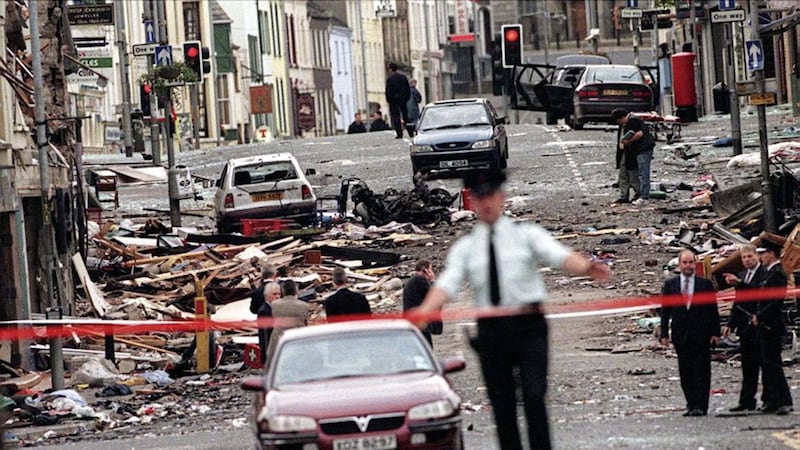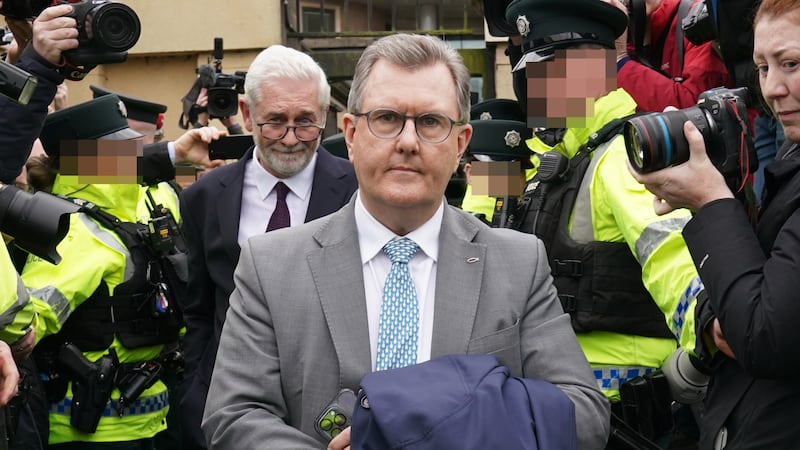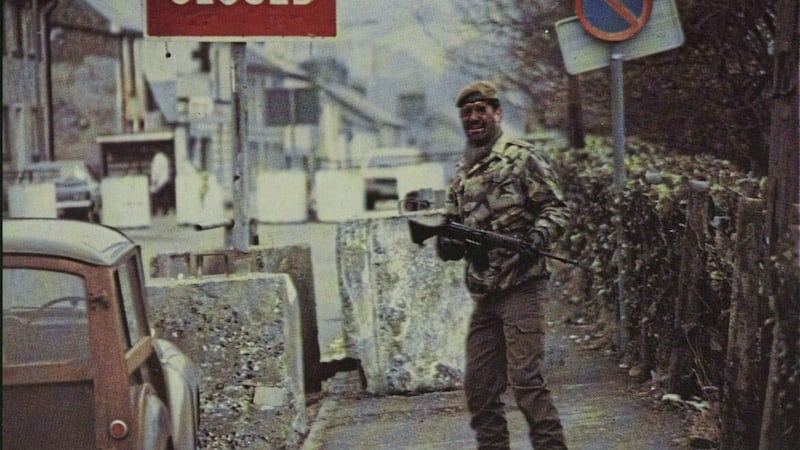It has been a long 20 years for the Omagh families seeking justice for the killing of 29 of their loved ones.
Was it a complicated police investigation?
A massive cross-border manhunt was launched in the days after the 1998 Real IRA bombing.
The RUC immediately established an Omagh Bomb Investigation Team. Then-chief constable Sir Ronnie Flanagan gave a strong commitment to see that "no stone would be left unturned until we bring these people to justice".
Nobody has been convicted of murder.
Could police have done more?
On August 4 1998, 11 days before the bombing, the RUC received an anonymous telephone call warning that there would be an "unspecified" terrorist attack on police in Omagh on August 15 1998.
The force's Special Branch, which handled intelligence from agents, took only limited action on the information and a threat warning was not sent to the sub-divisional commander in Omagh, an independent police ombudsman investigation found.
An RUC review concluded in 2000 that the information should have been passed to the commander.
Was that the only prior indication?
Three days before the bombing, the RUC received information from a "reliable" informant known as Kevin Fulton which indicated paramilitaries in the Republic were about to "move something north over the next few days", the ombudsman said.
The watchdog identified 360 intelligence documents within Special Branch which may have been of varying degrees of relevance to the investigation. Some 78 per cent of these documents had not been passed to the bomb investigation team.
Former ombudsman Baroness Nuala O'Loan said: "The victims, their families and officers of the RUC have been let down by defective leadership, poor judgment and a lack of urgency."
What else may have gone wrong?
The suggestion that intercepts of the mobile phone calls of the bombers en route to Omagh were not shared with the detectives trying to identify them was explored by a parliamentary committee of MPs at Westminster.
Baroness O'Loan told the Northern Ireland Affairs Committee she did not know why the intelligence had not been shared.
Official reaction?
In 2013, former secretary of state Theresa Villiers said she did not believe there were sufficient grounds to justify a further public inquiry.
She said an investigation by the ombudsman was the best way to address any outstanding issues.
Families' reaction?
Michael Gallagher, whose son Aiden died aged 21, led calls for a cross-border public inquiry.
He has told a court in Belfast there was enough intelligence available before the terror strike to thwart it, based on intelligence source claims that they disclosed terrorist plans in the run-up to the attack.
Has anything been done to pursue the killers?
In the 20 years since the Omagh bomb no-one has ever been convicted in a criminal court of causing the deaths of the Real IRA atrocity’s victims.
In 2002, Colm Murphy, originally from south Armagh, was found guilty by Dublin’s Special Criminal Court of conspiring to cause an explosion likely to endanger life and sentenced to 14 years in prison, however, his conviction was overturned three years later and retrial ordered. Following the retrial he was acquitted.
The alleged founder and leader of the Real IRA Michael McKevitt was found guilty in 2003 of directing terrorism.
In 2007, following a 10-month trial, Co Armagh man Sean Hoey was found not guilty of 58 charges, including the murders of 29 people in the Omagh bombing. Clearing Mr Hoey, the judge criticises police witnesses for “deliberate and calculated deception”.
In 2009 the judge in a civil trial rules that Michael McKevitt, Liam Campbell, Colm Murphy and Seamus Daly were all liable for the Omagh bomb. He orders them to pay a total of £1.6 million damages to 12 relatives who took the case. A fifth man, Seamus McKenna, is cleared of liability for the bombing. None of the money has been paid.
Seamus McKenna died in 2013 after he fell from scaffolding while repairing a roof at a school in Dundalk, Co Louth.
In March 2016, the Public Prosecution Service withdrew its case against Seamus Daly, from Jonesborough, Co Armagh, after a key witness gave inconsistent evidence.
Later the same year a bid by McKevitt and Campbell to overturn the civil ruling is rejected by the European Court of Human Rights.
READ MORE:
- Memories of the wails of the innocent
- Omagh bombing victim's father says bombing was a 'preventable atrocity'
- Video: Michael Gallagher says Omagh bombing has been a '20 year nightmare'
- Video: Fireman Paddy Quinn remembers the Omagh bombing 20 years on
- Omagh Bombing – events leading up to and beyond the Real IRA bomb explosion








